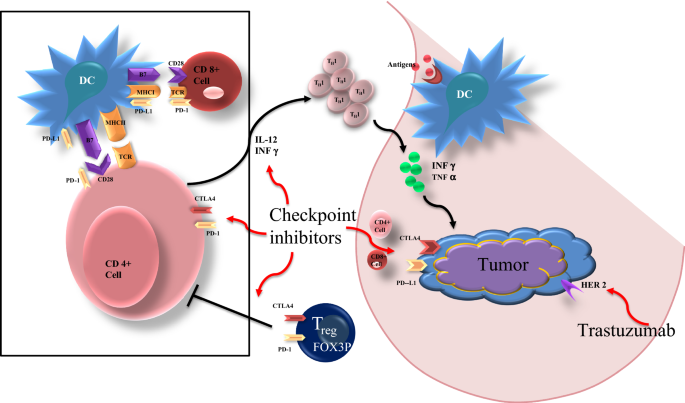In a world still navigating the aftermath of global pandemics and rising antimicrobial resistance, infection control has emerged as one of the most vital components of public health. While it is often associated primarily with hospitals and healthcare settings, infection control extends far beyond clinics and surgical rooms—it is equally important in everyday life, from schools and offices to homes and public transport.
Infection control refers to the policies, practices, and tools used to prevent the spread of harmful microorganisms such as bacteria, viruses, fungi, and parasites. It is essential not only for protecting vulnerable individuals but also for ensuring the safety of healthcare providers, reducing hospital-acquired infections (HAIs), and preventing outbreaks in communities.
In this article, we’ll explore why infection control matters, the most effective methods to implement it, and how both healthcare facilities and individuals can take practical steps to create a cleaner, safer environment.
Why Infection Control Is Critically Important
1. Reducing the Spread of Disease
At its core, infection control is about interrupting the chain of transmission. This involves eliminating or minimizing contact with infectious agents through hygiene, disinfection, and barrier methods. Whether it’s seasonal flu, foodborne illness, or novel viruses like COVID-19, infection control measures can dramatically lower transmission rates.
2. Protecting Vulnerable Populations
Infants, the elderly, and individuals with weakened immune systems (due to chronic illness, chemotherapy, or organ transplants) are particularly susceptible to infections. In healthcare environments, a single lapse in protocol can lead to dangerous consequences. Infection control is critical to protecting these at-risk groups from unnecessary exposure.
3. Preventing Hospital-Acquired Infections (HAIs)
Healthcare settings are breeding grounds for resistant bacteria and infectious agents. According to the CDC, approximately 1 in 31 hospital patients in the U.S. has at least one healthcare-associated infection on any given day. Effective infection control strategies—such as proper hand hygiene, PPE use, and environmental disinfection—are essential in reducing these incidents.
4. Limiting the Spread of Antimicrobial Resistance (AMR)
Overuse and misuse of antibiotics have contributed to antimicrobial resistance, where bacteria evolve to resist drugs designed to kill them. Infection prevention reduces the need for antibiotics in the first place, thereby playing a critical role in combating AMR, one of the top global public health threats.
5. Minimizing Economic Burdens
Infections not only harm patients—they also place a significant financial strain on healthcare systems. Additional treatments, prolonged hospital stays, and workforce absenteeism all contribute to higher costs. Infection control helps reduce these burdens, making healthcare delivery more efficient and sustainable.
Core Principles of Effective Infection Control
Whether you’re managing a hospital or simply looking to keep your household healthy, these core practices form the foundation of infection control:
1. Hand Hygiene
Proper handwashing is the single most important method to prevent the spread of germs. Use soap and water or alcohol-based hand sanitizer before and after patient care, meal prep, restroom use, and contact with public surfaces.
2. Use of Personal Protective Equipment (PPE)
In clinical environments, PPE such as gloves, masks, gowns, and eye protection act as barriers against infection. For the general public, wearing masks during flu season or COVID-19 spikes helps prevent airborne transmission.
Explore high-quality PPE in the Infection Control Supplies collection from Vigour Med Store.
3. Surface Disinfection and Sterilization
Viruses and bacteria can survive on surfaces for hours—or even days. Regularly disinfecting high-touch areas like doorknobs, keyboards, and shared equipment is essential in both healthcare and home settings.
4. Respiratory Hygiene and Cough Etiquette
Covering your mouth when coughing or sneezing, using tissues, and disposing of them properly helps contain respiratory droplets that can carry viruses like influenza or SARS-CoV-2.
5. Waste Disposal and Sharps Safety
Proper disposal of medical waste, especially needles and other sharps, is critical to prevent accidental injuries and exposure to infectious materials.
Infection Control in Healthcare Settings
Hospitals and clinics must implement strict infection control protocols to protect both patients and staff. Key practices include:
-
Isolation protocols for contagious patients
-
Antiseptic hand rub stations in hallways and entrances
-
Sterile field maintenance during surgeries and invasive procedures
-
UV disinfection systems and HEPA air filtration in critical care areas
-
Staff training and competency checks on infection prevention
These facilities also rely heavily on medical-grade infection control supplies—including antimicrobial wipes, hospital-grade disinfectants, PPE, and sterilization tools—all of which are available in Vigour Med Store’s dedicated collection.
Infection Control in Daily Life
Infection prevention isn’t limited to hospitals. Every home, school, office, and public place can benefit from a few simple measures:
At Home:
-
Disinfect kitchen counters, doorknobs, and light switches regularly.
-
Don’t share personal items like razors, towels, or toothbrushes.
-
Maintain proper food hygiene—wash produce, cook meat thoroughly, and refrigerate leftovers promptly.
In Schools:
-
Promote handwashing among students and staff.
-
Encourage sick children and teachers to stay home.
-
Use disinfectant wipes for shared materials like desks and art supplies.
In the Workplace:
-
Provide hand sanitizer at entrances and shared spaces.
-
Clean phones, keyboards, and shared equipment daily.
-
Implement sick leave policies that discourage presenteeism.
While Traveling:
-
Carry disinfectant wipes and alcohol-based hand sanitizer.
-
Avoid touching your face after contact with surfaces in airports or buses.
-
Use a mask in crowded public transport or during flu season.
Building a Culture of Hygiene and Responsibility
True infection control goes beyond equipment and protocols—it requires a cultural shift. Everyone, from hospital staff to schoolchildren, should understand their role in preventing infection. Education campaigns, signage, and open communication are key to cultivating awareness and accountability.
In workplaces and healthcare settings, assigning Infection Control Coordinators or hygiene monitors helps ensure protocols are followed consistently. In families, creating habits such as handwashing before meals or sanitizing phones weekly sets the standard for daily prevention.
Conclusion: Prevention Is Better Than Cure
Infection control is not just a healthcare protocol—it’s a shared responsibility that affects us all. Whether you’re a doctor in a surgical ward or a parent packing lunch for school, the principles of hygiene and prevention remain the same.
From hand hygiene and disinfection to the use of PPE and safe waste disposal, infection control is one of the most cost-effective and life-saving strategies in modern society. With the right knowledge, habits, and supplies, we can significantly reduce the risk of infections—at home, at work, and in the community.
For reliable, high-quality infection control essentials, explore the Infection Control Supplies Collection at Vigour Med Store. Our curated range includes medical gloves, disinfectants, surgical masks, gowns, and much more—designed to support both professional and personal hygiene standards.
Because when it comes to infection, prevention isn’t optional—it’s essential.



